
10 tips for observing Ramadan in Amsterdam
11 February 2026
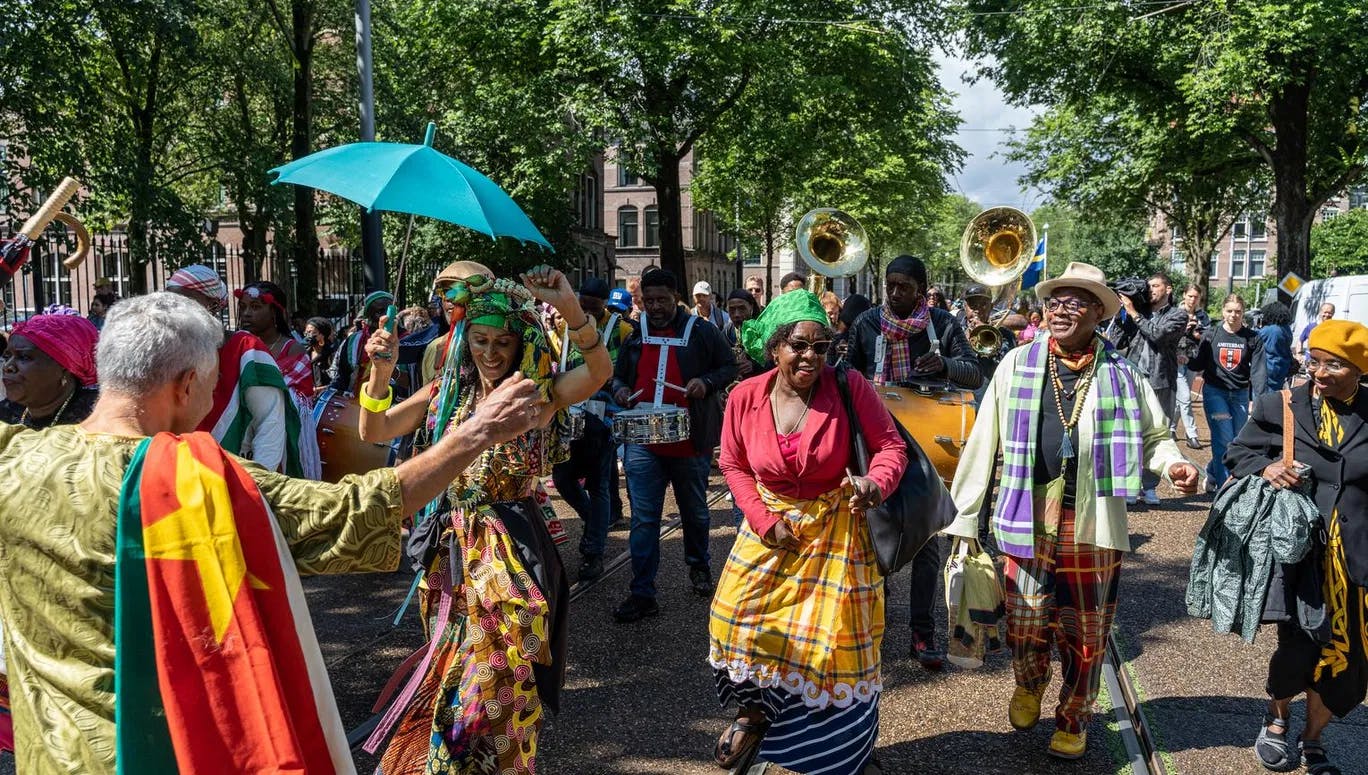
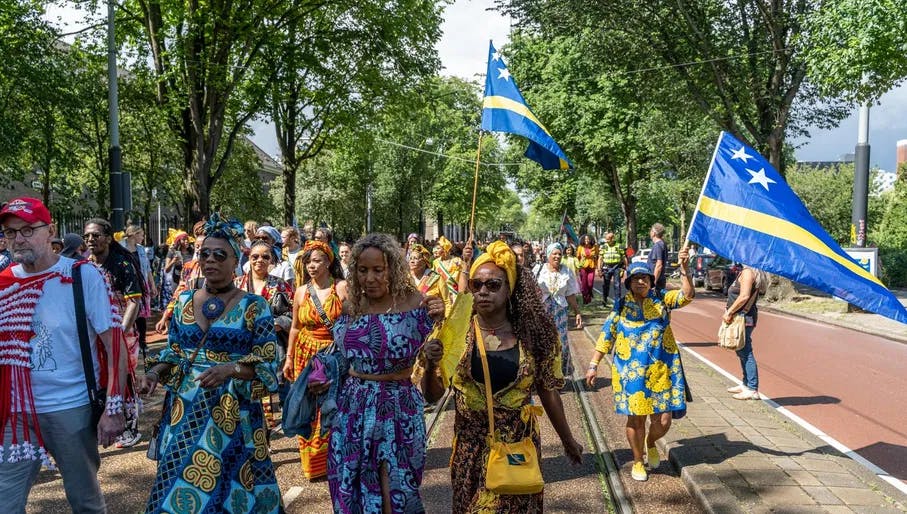
Keti Koti (literally meaning 'broken chains') comes from Sranantongo - the second language of Suriname, right after Dutch. Every year, on 1 July, Amsterdam reflects on the history of slavery and celebrates the moment Dutch slavery was abolished in Suriname and the Antilles back in 1863. But here's the catch: even though slavery was officially abolished in 1863, the folks who were previously enslaved still had to continue working on the plantations for another ten years. That's why 1873 is counted as the actual end of slavery - a decade after its formal abolition.
Ivette Forster has been one of the organisers of the Keti Koti Festival in Oosterpark since 2009. 'Get over it', 'It's been so long', and 'Move on with your life' are just a few of the opinions Ivette hears. But the commemoration remains significant. 'The way Black people are still viewed is rooted in the era of slavery: from colonialism to continued racism in society today' she explains. Keti Koti reminds us of the importance of treating each other equally. Ivette is optimistic: 'I see that there is much more attention for the history of slavery and racism, and an endless number of initiatives are emerging.' Some really exciting things are on the Amsterdam agenda.
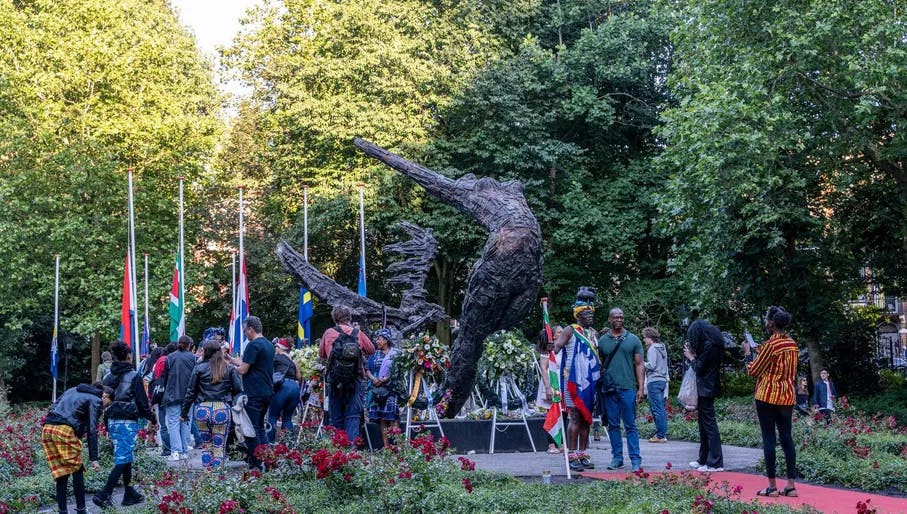
Ivette Forster has been one of the organisers of the Keti Koti Festival in Oosterpark since 2009. 'We celebrate Keti Koti on 1 July, but the commemoration starts on 30 June in Suriname. On the eve, many people in the community pause to reflect upon the horrors of slavery. During kabraneti’s, sacred meetings within the Winti religion, remembrance and communication with ancestors and other deceased are the focus. This way, in Suriname, commemoration and celebration are kept separate, just like the Dutch do on the 4 May for Herdenkingsdag (Remembrance Day), followed by Bevrijdingsdag (Liberation Day) on the 5 May. On the 30 June, there is customarily a vigil at the National Slavernij (Slavery) Monument in Oosterpark to honour the ancestors, followed by live music.
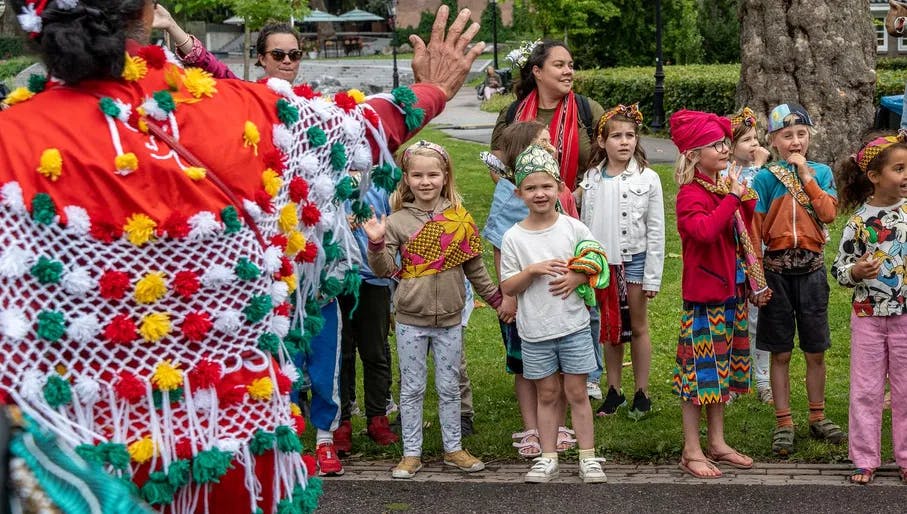
The official national commemoration takes place on 1 July at 10:30 with the Bigi Spikri, a parade where people in traditional costumes walk from Stopera to Oosterpark. Bigi Spikri literally means 'big mirror'. Ivette: 'The story goes that when the enslaved were freed, they paraded through big cities past the reflective shop windows, admiring themselves in their beautiful clothes. It's really just a cheerful and colourful parade.'
Once the parades get to Oosterpark, the national commemoration at the Monument of Dutch Slavery History and Heritage in Oosterpark takes place at around 14:00. In previous years, speeches have been given by members of the Dutch Royal Family, Plenipotentiary Ministers of Curaçao, St. Maarten and Aruba, the Ambassadors of Suriname, Ghana and South Africa, Queen Máxima, Prime Minister Rutte and the Mayor of Amsterdam. Everyone is welcome at Oosterpark and sometimes the commemoration is broadcasted by the NOS and AT5.




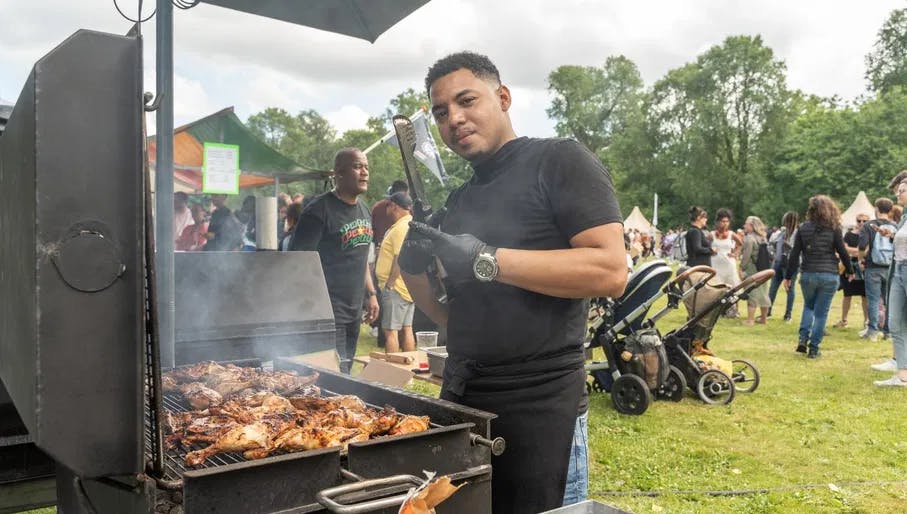

After the remembrance ceremony, the festival kicks off, and the party really gets going. Traditionally this takes place in Oosterpark - but in 2023 it took place at Museumplein. From 13:00 to 23:00, the square hosted four stages, each with its own musical program. So, you'll get to hear music from artists such as Jayh Yawson, Chivv, Dylisa and Cho. There are also often talks organised by, for example, The Black Archives, where discussions will focus on themes of healing and recovery and what this all means for the community.